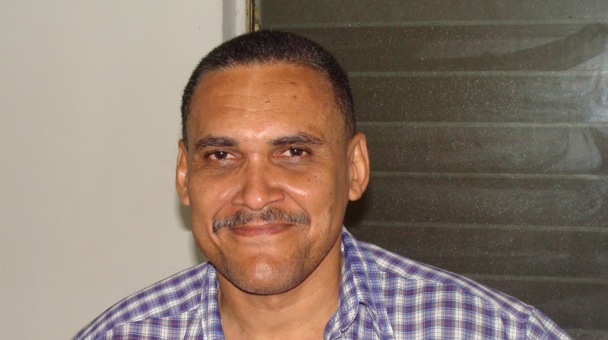
Following his release from prison on humanitarian grounds in 2004, Cuban writer Jorge Olivera Castillo was offered a scholarship at Harvard University. Years later, having been granted ‘one-time permission’ to travel, he is finally able to accept the offer. In an exclusive piece for English PEN, Jorge explains just how much this means to him.
Before the year draws to a close, the journey to Harvard University will no longer be an illusion. I can still hardly imagine myself within the hallowed walls of one of the best centres for higher education in the world. It will be my second journey abroad in 55 years.
My first trip was in 1981, as a soldier in the Angolan Civil War in which more than 300,000 Cubans took part between 1975 and 1989.
Miraculously, I survived this traumatic experience: 26 months of risk and vicissitudes, living in underground shelters, in the company of poisonous snakes, rats, and mosquitoes, and at the mercy of attacks by the guerrillas led by Jonas Sabimbi.
My presence in the war being waged against internal forces, during which I faced death on several occasions, was by no means voluntary: the highest Cuban authorities were committed to supplying troops and military equipment under the terms of a treaty with the former Soviet Union, which had also played an important role in the conflict, and Angola, under the Presidency of Antonio Agostinho Neto.
I was transported there by cargo ship, crammed into one of the holds, without access to a bathroom. I spent 17 days at sea.
It is as a result of this experience that it seems almost a miracle to me that I could arrive in Boston clean and eager, not as the ragged, haggard individual who disembarked in April 1981 to dice with death on a daily basis.
It has been several years since I was offered a place at Harvard – a Scholars at Risk fellowship – thanks to the support of my colleagues at English PEN. But it was impossible to take up their offer. The Cuban government refused to grant me the necessary permissions to do so. The status of political prisoner, which I acquired in March 2003 when I was arrested and later sentenced to 18 years in prison for exercising my right to freedom of expression, prevented me from going abroad.
This all changed on 22 February 2016 when a Cuban immigration official told me that I had been granted ‘one-time permisson’ to travel and, crucially, to return to Cuba.
When I return from Harvard, I will still have to continue serving the sentence imposed by the court all those years ago. The greatest danger is that the release I was granted in December 2004 after 21 months behind bars could still be revoked at the whim of the authorities.
Technically I’m still a hostage of the longest dictatorship in the Western Hemisphere. But I try not to think too much about a future that could be darker than the past.
I know full well that I could be returned to an isolation cell, or forced to live with highly dangerous criminals.
I have decided not to worry about it. I prefer to continue celebrating the joy of being invited to Harvard. A dream waiting to come true.
Translated by Cat Lucas
Jorge Olivera Castillo is among the international writers to be featured at the inaugural English PEN Modern Literature Festival, for which he has been paired with Caleb Klaces.